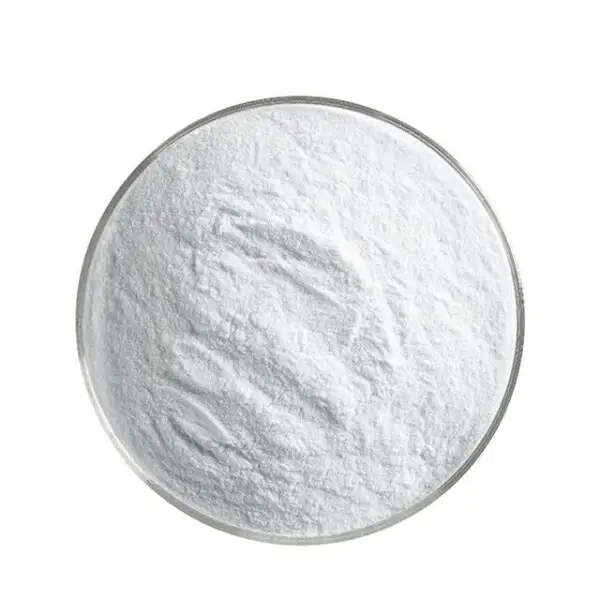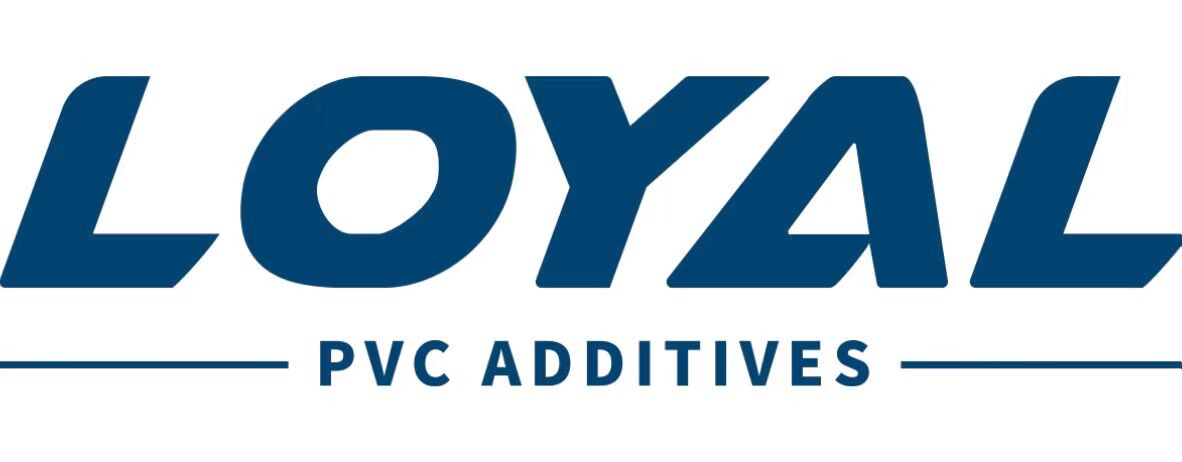Shandong Loyal Chemical Co., Ltd. is a chemical Pvc Resin Manufacturers specializing in the development and production of PVC RESIN.
Although PVC RESIN is one of the common plastics, Shandong Polymer Additives Polyvinyl Chloride Resin has good mechanical properties with a tensile strength of around 60 MPa, an impact strength of 5-10 kJ/m2 and excellent dielectric properties.
Because of its obvious advantages and its ability to meet the needs of different customers, PVC RESIN is a popular, popular and widely used synthetic material in the world today. It is the second most used synthetic material in the world.

PVC RESIN Recommend Products
PVC RESIN Detail Introduction
PVC RESIN is a polymer formed by the polymerisation of vinyl chloride monomer (VCM) in the presence of initiators such as peroxides, azo compounds or by the mechanism of free radical polymerisation under the action of light or heat. Vinyl chloride homopolymers and vinyl chloride copolymers are collectively called vinyl chloride resins.
PVC manufactured by Loyal is the world's most produced general purpose plastic and is used in a wide range of applications. It is widely used in construction materials, industrial products, household goods, flooring leather, floor tiles, artificial leather, pipes, wires and cables, packaging films, bottles, foaming materials, sealing materials, fibres, etc.
In recent years, Shandong Polymer Additives PVC RESIN technology has been absorbing advanced technology from home and abroad, constantly innovating and devoting itself to providing customers with higher quality plastic materials. If you need to buy Polyvinyl Chloride Resin, we will provide you with the most comprehensive and professional consulting services, as well as the best quality PVC RESIN and the most suitable and favorable Pvc Resin Price.
What are the properties of PVC RESIN material?
Properties of PVC RESIN | |
| Density | 1380 kg/m3 |
| Young's modulus of elasticity (E) | 2900-3400 MPa |
| Tensile strength (σt) | 50-80 MPa |
| Elongation at break | 20-40% |
| Glass transition temperature | 87℃ |
| Melting point | 212℃ |
| Softening temperature | 85℃ |
| Thermal conductivity (λ) | 0.16 W/(m·K) |
| Coefficient of thermal expansion (α) | 8×10-5 /K |
| Heat capacity (c) | 0.9 kJ/(kg·K) |
| Water absorption (ASTM) | 0.04-0.4 |
| Refractive index | 1.52~1.55 |
The most important feature of PVC RESIN is that it is flame retardant and is therefore used for fire protection applications in addition to a wide range of everyday applications. When Polyvinyl Chloride Resin is used, a wide range of hard, soft and transparent products can be made if the right amount of plasticiser is added to Polyvinyl Chloride Resin.
What are the moulding conditions for rigid PVC RESIN?
Molding conditions for rigid PVC RESIN | |
| Tube temperature | 160-190℃ |
| Mould temperature | 40-60℃ |
| Drying temperature | 80℃×2h |
| Injection pressure | 700-1500kg/cm2 |
| Density | 1.4g/cm3 |
| Forming shrinkage | 0.1-0.5% |
| Flesh thickness | 2.0-50.mm |
| Water absorption(24h) | 0.1-0.4% |
| Melt softening point | 89℃ |
| Heat deflection temperature | 70℃ |
What are the forming conditions for soft PVC RESIN?
Molding conditions for rigid PVC RESIN | |
| Tube temperature | 140-170°C |
| Mould temperature | 40-60℃ |
| Drying temperature | 80℃×2h |
| Injection pressure | 600-1500kg/cm2 |
| Density | 1.4g/cm3 |
| Forming shrinkage | 0.1-0.5% |
| Flesh thickness | 2.0-50.mm |
| Water absorption(24h) | 0.1-0.4% |
| Melt softening point | 85℃ |
| Heat deflection temperature | 55℃ |
Of course when Pvc Paste Resin is synthesised into different materials, different additives can be added depending on the application and the PVC plastic can present different physical and mechanical properties.
Pvc Paste Resin is a thermoplastic resin. PVC futures are also known as futures with polyvinyl chloride as the underlying material.
What materials can be synthesised from PVC RESIN?
PVC RESIN synthetic materials | |
| Plastics | Polyethylene; polyvinyl chloride; polystyrene; polyvinyl alcohol; polypropylene; polyacrylic acid; polybutylene; polyisobutylene; polysulfone; polyformaldehyde; polyamide; polycarbonate; polylactic acid; polytetrafluoroethylene; polyethylene terephthalate; epoxy resins; phenolic resins; polyurethane |
| Synthetic rubber | SBR; SBR; NBR; Neoprene; Neoprene |
| Synthetic fibres | Polypropylene; polyester; nylon; acrylic; spandex; vinylon; nylon; dacron; kevlar |
Of all plastic materials PVC RESIN is the easiest to process and can be moulded, laminated, injection moulded, extruded, calendered and blow moulded hollow. But at the same time Polyvinyl Chloride Resin is brightly coloured, corrosion resistant, strong and durable, and its products are generally not stored in food and pharmaceuticals due to the addition of some toxic auxiliary materials such as plasticisers and anti-ageing agents in the manufacturing process.
The quality of PVC Resin compares favourably with other alternatives and is cheaper than these materials in terms of cost. In this sense, the market for PVC RESIN is very promising. As time goes by, Polyvinyl Chloride Resin is gaining popularity for its good performance, simplicity and many other advantages, and is becoming more and more accepted.
What are the advantages of Polyvinyl Chloride Resin?
Advantages of Polyvinyl Chloride Resin | |
1 | Polyvinyl Chloride Resin is rich in raw materials, petroleum, limestone, coke, salt and natural gas can be used. |
2 | After years of precipitation and development, the manufacturing process of PVC RESIN is mature and different types of products can be produced and manufactured. |
3 | The low price of Pvc Resin, which has the second highest global use of any synthetic material. |
4 | Pvc Paste Resin is used in a wide range of applications, in addition to soft plastic products such as films and wire sheathing, it can also be used to produce hard plastic products such as sheets, doors and windows, pipes and valves. |
5 | Pvc Resin has properties such as rain resistance, fire resistance, anti-static and easy to mould. |
Pvc Resin was first synthesised in 1835 in the laboratory of Justus von Liebig. Pvc Resin was synthesised by Baumann in 1872. However, it was not until the 1920s that the first commercial product of Pvc Resin was produced in the USA, and it was only within the next 20 years that large-scale production began in Europe.
Shandong Polymer Additives Pvc Resin Manufacturers produces Polyvinyl Chloride Resin which is chemically stable and can be classified as PVC general soft products, PVC films, PVC coated products, PVC foam products, PVC transparent sheets If you have any other questions about Pvc Resin, please feel free to contact us.
1. What is PVC resin?
Polyvinyl chloride (PVC) is the world's most widely used third plastic and is an attractive alternative to traditional materials such as glass, metal, wood and other plastic materials due to its versatility, durability and cost competitiveness.
PVC resin is a polymer formed by the polymerisation of vinyl chloride monomer (VCM) in the presence of initiators such as peroxides, azo compounds or by the mechanism of free radical polymerisation under the action of light or heat, with additional components added to enhance its heat resistance, toughness, ductility, etc. Vinyl chloride homopolymers and vinyl chloride copolymers are collectively known as vinyl chloride resins.
2. What is polyvinyl resin used for?
Pvc Paste Resin (PVC or vinyl) is used in a wide variety of applications in building and construction, healthcare, electronics, automotive and other fields, ranging from pipes and siding, blood bags and ducts to wire and cable insulation, windscreen system components and more.
Pvc Paste Resin is chemically stable, so it is used to make corrosion-resistant pipes, fittings, oil pipelines, centrifugal pumps and blowers. PVC hardboard is widely used in the chemical industry for the lining of tanks, corrugated panels for buildings, window and door structures, wall decorations and other construction materials.
Due to its excellent electrical insulation properties, it is used in the electrical and electronic industry to make plugs, sockets, switches and cables. In everyday life, PVC is used to make sandals, mackintoshes, toys and artificial leather!
3. What is PVC resin made of?
In its original form, it appears as a white powdered solid. 57% of PVC is chlorine and 43% is carbon. It is considered one of the more renewable plastics as the process of deriving PVC resin granules is rarely dependent on petroleum.
PVC is a white powder with an amorphous structure, with a small degree of branching, a glass transition temperature of 77-90°C and decomposition starting at around 170°C. It has poor stability to light and heat and will decompose above 100°C or after prolonged sunlight exposure to produce hydrogen chloride and further autocatalytic decomposition, causing discolouration and a rapid decline in physical and mechanical properties, and in practical applications stabilisers must be added to improve stability to heat and light. In practical applications, stabilisers must be added to improve stability against heat and light.
4. What is the difference between PVC and PVC resin?
PVC is the abbreviation for polyvinyl chloride. PVC resin is a white powder that is commonly used in the production of thermoplastics. Other members of the vinyl family can be used for similar applications, but PVC tends to be the most popular member of the family.
PVC paste resin: PVC is dispersed in a liquid plasticiser to dissolve and plasticise it into a plasticising sol, usually with an emulsion or micro-suspension resin, and also with stabilisers, fillers and colourants, etc. After thorough mixing and de-bubbling, it is formulated into a PVC paste, which is then processed into various products by feeding, dipping, casting or enamelling. Such as coat hangers, tool handles, Christmas trees, etc.
5. What is the scope of application of Pvc Resin?
From the point of view of the consumption structure, 65% of PVC products are currently consumed in the field of hard products (including pipes 15%, fittings 5%, windows, doors and profiles 30%, hard sheets and plates 8%, etc.) and 35% are used in the production of soft products. In the future, the proportion of PVC hard products will be gradually expanded, and the development of hard products will be based on composite materials, blended materials and other raw materials and products adapted to the requirements of the building materials market. Soft products are still mainly wire and cable, packaging materials and wallpaper. The overall development of products to non-toxic, low plasticizer direction.
6. Is the production process of Pvc Resin complicated?
The production process of PVC is not complicated. A common production line consists of a rolling machine, a printing machine, a back-coating machine and a cutting machine, which mainly produces a film with a thickness of only 0.3 mm to 0.7 mm by direct stirring, roller rotation and high temperature rolling.
This layer is an important guarantee of the high quality of the PVC film. The back coating is made up of a special material, which is a high energy affinity agent, and it is thanks to this layer that the PVC film is able to fuse tightly with the medium density board or other panels for ten or even fifteen years without opening. The biggest problem with ordinary laminates is that they do not peel off the film.
7. What is the future of Pvc Resin?
Polyvinyl Chloride Resin is the second most widely used synthetic material in the world and PVC is used in everyday life. It is already used in a wide range of products in various industries, and since a large proportion (about 57% by weight) of the raw material for Pvc Resin is chlorine gas, an inevitable by-product of the alkali industry, it is not only an abundant source of raw material, but also a very important product for the development of the chlor-alkali industry and the balancing of chlorine gas.
If you need Polyvinyl Chloride Resin material, you can contact us and we can supply it to you.









